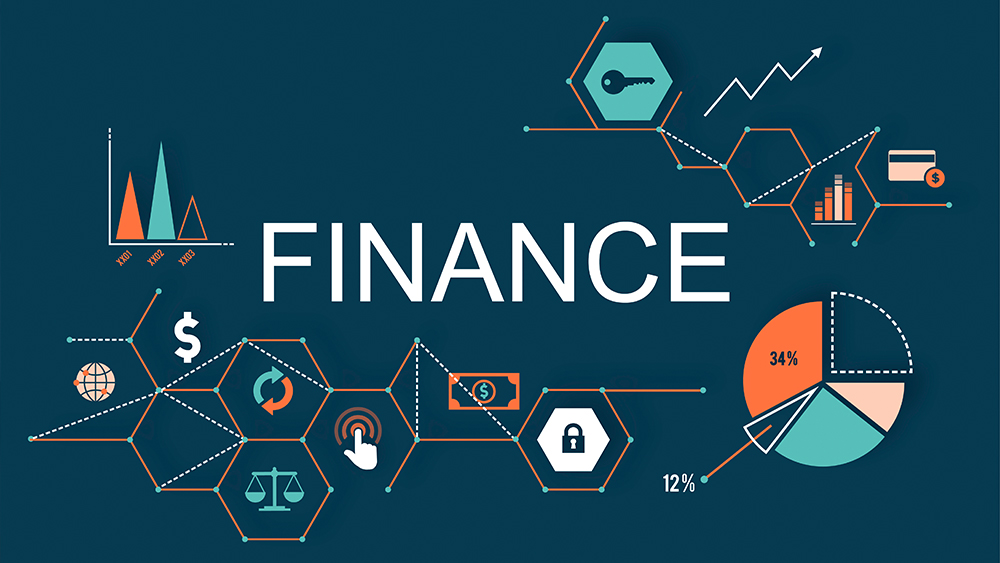Finance, economics, and accounting all share an interest in the creation, redistribution, and administration of monetary and other resources. These problems are often explored separately despite their interdependence. This essay examines how the fields of finance, economics, and accounting are intertwined and how each influences society as a whole.
Finance and its Relationship to Economics and Accounting
Finance examines money creation, allocation, and utilization. Financial markets, tools, institutions, and decisions that affect wealth and well-being are all analyzed here. Corporate, personal, public, behavioral, and financial engineering are also all branches of finance. Finance employs economic theories and models to explain and assess financial phenomena and accounting information and standards to monitor and report financial performance.
Economics studies how people and cultures choose under shortage. It investigates the production, consumption, and distribution of commodities and services and their influences. Finance uses economic theory to examine financial markets and actors’ behavior and efficiency and the economic consequences of financial actions. Economics helps finance understand how supply and demand in the money market determine interest rates, risk, and return in the capital market, how exchange rates are affected by international trade and capital flows, how financial crises occur and can be prevented or mitigated, etc.
Accounting records summarize, analyze, and communicate financial information about an entity. It uses rules, concepts, standards, and methodologies to measure and report an entity’s financial status, performance, and cash flows. Accounting has two main branches: financial and managerial. Investors, creditors, regulators, and others utilize financial accounting to get accurate financial information. Managerial accounting helps managers, employees, owners, etc. plan, control, evaluate, and improve operations. In conclusion, finance theory, practice, and application are linked to economics and accounting. Three disciplines work together to explain money and its significance in society.

Finance and its relationship to economics and accounting
Economics and its Relationship to Finance and Accounting
Economics studies how people and cultures choose under shortage. It investigates the production, consumption, and distribution of commodities and services and their influences. Finance and accounting use economics to evaluate financial markets and agents’ behavior and efficiency and the economic consequences of financial actions. Economics measures and evaluates a business or society’s economic performance and welfare using accounting data. Economic metrics like national income, GDP, net worth, etc. are calculated using accounting concepts like income, expenses, assets, liabilities, equity, etc.
Accounting and its Relationship to Finance and Economics
Accounting records summarize, analyze, and communicate financial information about an entity. It uses rules, concepts, standards, and methodologies to measure and report an entity’s financial status, performance, and cash flows. Accounting has two main branches: financial and managerial. Investors, creditors, regulators, and others utilize financial accounting to get accurate financial information. Managerial accounting helps managers, employees, owners, etc. plan, control, evaluate, and improve operations. Finance and economics use accounting data to assess an entity’s financial performance and value. Accounting guarantees that financial transactions are recorded accurately and consistently according to GAAP or IFRS. Accounting helps finance meet legal and ethical standards including taxation, audits, disclosure, etc. Accounting uses economic models to establish the best resource allocation and direction for a company. Accounting makes investment, budgeting, and pricing decisions using economic principles like opportunity cost, marginal analysis, present value, etc.

Entrepreneur analyzes economic and financial growth
The connection between finance, economics, and accounting
Finance, economics, and accounting are linked fields that produce, distribute, and manage money and other resources. They are generally researched individually yet have many interconnections and ramifications. This section examines how finance, economics, and accounting affect people, businesses, and societies. Money is a means of exchange, unit of account, and store of value that facilitates transactions and comparisons. Money reflects the desires, expectations, and behaviors of consumers, producers, investors, savers, borrowers, etc.
Finance, economics, and accounting measure performance and value using money. The three interact through feedback loops and spillover effects. Financial decisions affect the economy by influencing capital availability and cost, resource allocation, investment and consumption, income and wealth distribution, etc. Economics affects finance by affecting money and credit demand and supply, interest rates and exchange rates, inflation and deflation, business cycles and growth rates, etc. Accounting information provides accurate and relevant financial and performance data, affecting finance and economics. Accounting standards ensure consistency and comparability across businesses and periods, affecting finance and economics.
A third relationship is that finance, economics, and accounting share goals and obstacles. Finance, economics, and accounting aim to improve money and resource management. They optimize risk-return, cost-benefit, present-future value, etc. By improving financial products and services, supporting economic growth and development, maintaining financial stability and sustainability, etc.

Illustration data analysis graph
How understanding this connection helps entrepreneurs
Entrepreneurs start, run, and organize new businesses. They encounter various problems and possibilities when implementing their ideas. Financial, economic, and accounting knowledge can aid entrepreneurs in various ways, including:
- Finance helps entrepreneurs raise capital, assess risks, maximize returns, and value their firms. Finance helps entrepreneurs use banks, venture capitalists, angel investors, crowdfunding platforms, and other financial markets, instruments, and institutions.
- Economics may help entrepreneurs understand and predict demand and supply, consumer and competitor behavior and preferences, the impact of their decisions on the economy and society, and external opportunities and risks. Economics may also assist entrepreneurs in creating and implementing business plans, policies, and incentives.
- Accounting may assist entrepreneurs in recording and sharing financial data with investors, creditors, authorities, employees, consumers, etc. Accounting may also assist entrepreneurs in managing their finances, complying with laws and ethics, and improving their decision-making and problem-solving skills.
Entrepreneurs gain from studying finance, economics, and accounting
It can improve their business coaching abilities by helping other or wannabe entrepreneurs. Setting realistic and achievable goals for themselves and their businesses and tracking and measuring their progress and outcomes helps improve their personal trainer skills.
It teaches money management, financial literacy, and financial independence, improving their financial education. In conclusion, understanding finance, economics, and accounting can help entrepreneurs succeed in the dynamic and complex business environment.
Conclusion
Finance, economics, and accounting are interconnected in theory, practice, and application. The three disciplines work together to provide a complete grasp of money and its role in society.


